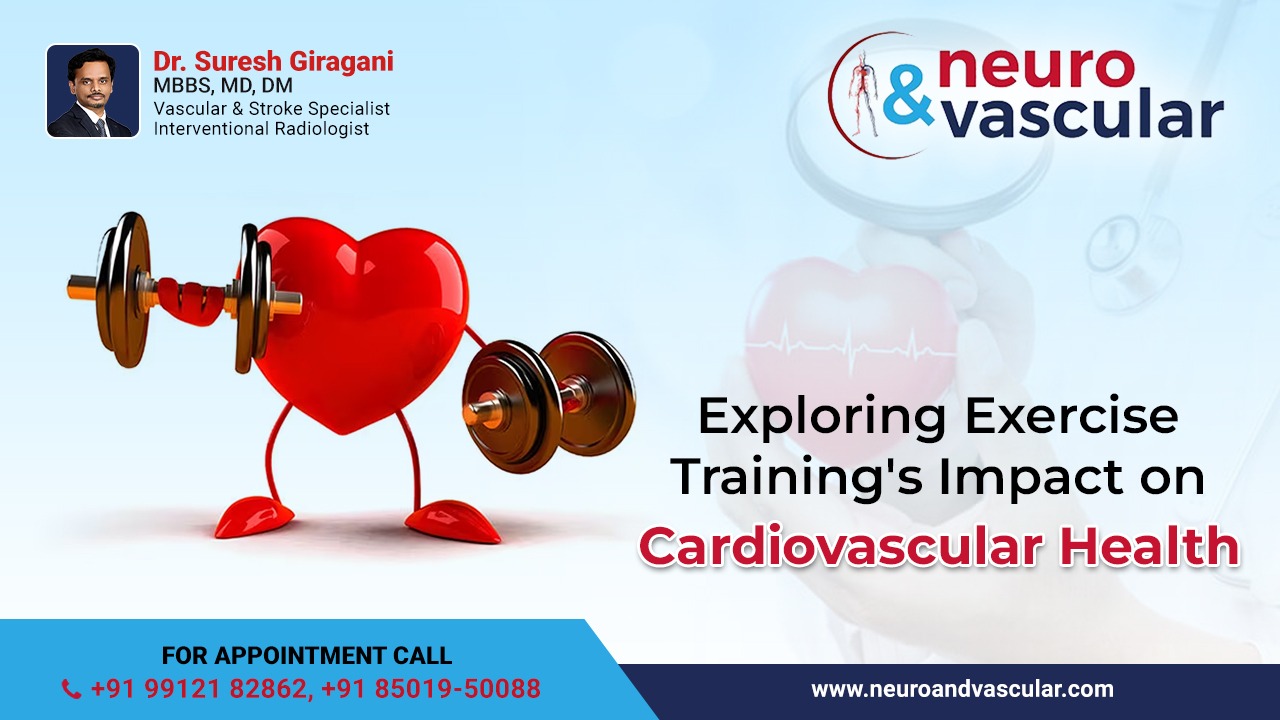
Exploring Exercise Training’s Impact on Cardiovascular Health
The intricate dance of cardiovascular health is fueled by the transformative power of exercise training. Beyond the visible benefits of improved fitness and endurance lies a symphony of metabolic adaptations, physiological cardiac hypertrophy, myocardial oxidative stress, systemic responses, and vascular changes. In this blog, we’ll unravel the intricate threads that weave together to form the cardiovascular tapestry, exploring the impact of exercise training on metabolic health and its profound implications for reducing cardiovascular risk factors and incidence of events.
Exercise Training Types:
-
Metabolic Adaptations
The journey of cardiovascular health begins at the cellular level. Exercise training initiates metabolic adaptations, orchestrating a ballet within the body’s cells.
- AMP-Activated Protein Kinase (AMPK): Exercise activates AMPK, a cellular regulator often referred to as the “metabolic master switch.” AMPK promotes cellular energy balance, enhancing glucose uptake and fatty acid metabolism.
- Improved Insulin Sensitivity: Regular physical activity enhances insulin sensitivity, lowering the risk of insulin resistance and type 2 diabetes. Improved glucose regulation is a fundamental aspect of cardiovascular health.
- Inflammatory Modulation: Regular physical activity reduces chronic inflammation, a key contributor to cardiovascular diseases. This anti-inflammatory effect promotes a healthier internal environment.
- Metabolic Health: Exercise improves lipid profiles, managing cholesterol levels by raising HDL (“good”) cholesterol and lowering LDL (“bad”) cholesterol. This metabolic balance reduces the risk of atherosclerosis.
-
Better responsive heart
- Increased Stroke Volume: The heart’s chambers may enlarge, allowing for greater blood volume with each contraction. This results in an increased stroke volume, improving the heart’s efficiency.
- Enhanced Cardiac Output: Physiological hypertrophy contributes to a more powerful contraction, improving cardiac output—the amount of blood the heart pumps per minute.
- Improved Antioxidant Capacity: Regular exercise enhances the body’s antioxidant capacity, mitigating the potential harm caused by oxidative stress and contributing to cardiovascular resilience.
-
Reducing Cardiovascular Risk Factors
Exercise training acts as a prelude to cardiovascular wellness by addressing and reducing key risk factors.
- Blood Pressure Management: Regular exercise helps manage blood pressure by enhancing vasodilation, reducing vascular resistance, and improving overall cardiovascular function.
- Weight Management: Physical activity contributes to weight management, reducing the risk of obesity and its associated cardiovascular complications.
- Lipid Profile Optimization: Exercise positively influences lipid profiles, promoting a balance that reduces the risk of atherosclerosis and coronary artery disease.
-
Reduced Incidence of Cardiovascular Events
The culmination of exercise training’s impact on metabolic adaptations, physiological cardiac hypertrophy, vascular responses, and systemic changes results in composite outcome—a reduced incidence of cardiovascular events.
- Enhanced Cardiovascular Reserve: The cardiovascular system’s adaptability and efficiency, honed through exercise training, contribute to an enhanced cardiovascular reserve. This reserve reduces the risk of adverse events during periods of stress.
- Improved Heart Rate Variability: Regular exercise contributes to improved heart rate variability, a marker of the heart’s adaptability to different situations. Higher heart rate variability is associated with a reduced risk of cardiovascular events.
Conclusion:
As individuals embark on their journeys toward cardiovascular wellness, the holistic impact of exercise training shines as a beacon of hope. It is a journey where each step, each beat, is a note in a musical tapestry, creating a composition that resonates with the melody of a heart in harmony with health.
About the Author:

Name: DR . SURESH GIRAGANI
INTERVENTIONAL RADIOLOGIST
DR. SURESH GIRAGANI CONSULTANT INTERVENTIONAL RADIOLOGIST at Apollo hospitals Jubilee Hills has more than sixteen years of clinical experience in vascular interventions with a special interest in neurovascular and peripheral vascular disease interventional procedures.